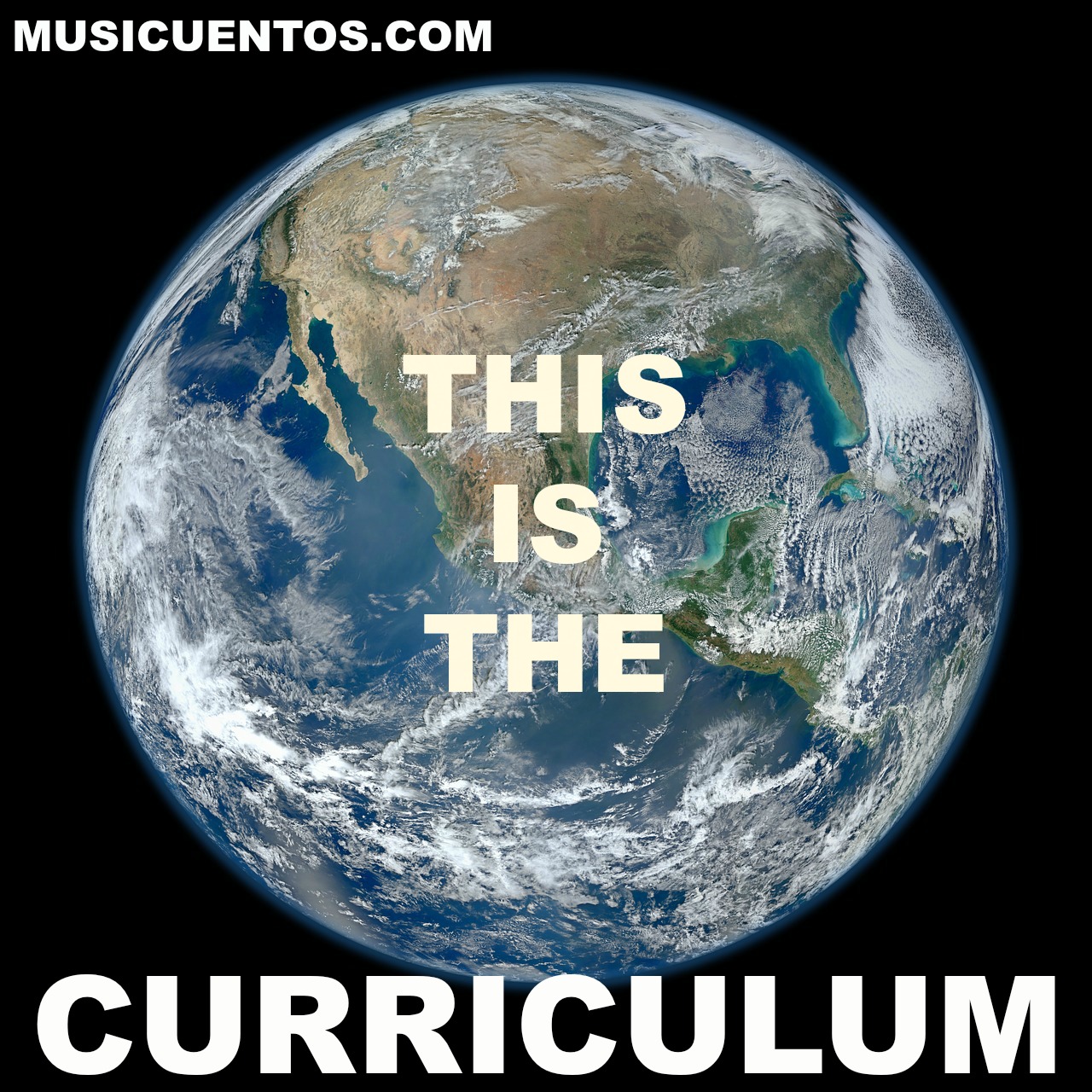Proposals are now open for two of my favorite conferences, my home conference, Kentucky World Language Association, and the 2016 Central States Conference on the Teaching of Foreign Languages. Conference presentations are only as good as they can relate to the content teachers actually need, so as usual, I’d like to know what you’d like to talk about.
KWLA is asking for either 1-hour sessions or 3-hour workshops, and the theme is “Communicate. Collaborate. Captivate. Building bridges to proficiency.” They’re also asking for more sessions in the target language.
CSCTFL will be held jointly with the conference of Ohio’s outstanding organization, OFLA, and the theme is Fostering Connections, Empowering Communities, Celebrating the World. Their call is for “sessions and workshops” but I can’t see the time limits on either without starting the submission process.
Below are the topics I’m considering. Almost all of them represent topics that are frequently asked about in emails or blog comments, or that I am asked to address in school visits. Please help me decide!
60-minute sessions
Please vote for only two.
Cartooning, Consistency, and Cool Content in Storytelling (ENGLISH)
Mejor Comunicación con el Cuento Muy Cool (above but SPANISH)
I’ll tell anyone who will listen that I found storytelling to be my most powerful tool to deliver engaging, comprehensible content to my students. Three of the aspects that are important and that helped me make the process smoother were using strategies to make content more attractive to students, using basic cartooning skills I learned in my undergraduate program (and I am not an artist at ALL!), and using patterning to help students extract and use structures more quickly. This workshop would demonstrate and invite participants to practice these three elements of my storytelling. Since I am so frequently asked for a video of my storytelling, I would try to have this session recorded.
Cultura y Comunicación con Comerciales
Hace varios años comencé a usar los comerciales en español en la clase con mis estudiantes, y decidí compartir los guiones e invitar a otros profesores a colaborar conmigo en el proyecto en un documento en Google. Ahora tenemos un montón de guiones, y unos cuantos profesores (por ejemplo Kara Jacobs) han hecho algo similar – los recursos de Kara son una maravilla. Los anuncios nos ofrecen una buena oportunidad para presentar la cultura y el lenguaje de forma rápida, corta, y a veces muy profunda. En esta sesión mostraría cómo usar un comercial para evaluar la comprensión auditiva y a la vez pedir comparaciones de cultura y opiniones de los estudiantes.
Turn to Page 132: Incorporate, Ditch, Adapt
Spoiler alert, I’m about to publish a blog post on this topic.
There seems to be almost a war within language teaching in which an army of teachers are shouting GET RID OF THAT LOUSY TEXTBOOK and another army of teachers are shouting I LOVE MY TIME-SAVING PRETTY TEXTBOOK and caught in the middle are another army of teachers (who show up in my email a LOT) whimpering MY DISTRICT SAYS I HAVE TO USE THIS TEXTBOOK, WHAT NOW?!
There’s really no need for this. Let me quote my wise and lovely friend Amy Lenord from a recent #langchat:
[We] have to stop thinking, “This is great activity,” and start thinking, “This is great tool. When to use it?”
This applies to textbooks, too! A textbook is just a tool in your curriculum, which is in fact a very big thing.
To summarize: If you use a textbook, whether you love it or hate it, there are three ways to approach the vast array of material modern textbooks offer you. You can ditch an activity/tool, you can incorporate it, or you can adapt it into something better. This session would have us all working on how to do that, using examples from the commonly adopted textbooks. If you think I can’t effectively address this topic in a one-hour session, vote below that it should be a 3-hour workshop.
El poder del cuento: La literatura infantil en la escuela primaria
Un problema muy común entre los maestros del español en la escuela primaria es que no tenemos para nada lo suficiente de tiempo con nuestros estudiantes. Cuando yo enseñaba en los niveles preescolar, kinder, y el primer grado, tenía 15-20 minutos con los niños – por semana. Aún así, mis niños adquirieron la capacidad de contar con comprensión un cuento básico con estructuras y vocabulario útiles, por el uso de cuentos infantiles populares. Pero, no es que solo leemos los cuentos y los niños podrán contarlos; lo intenté así con el libro La oruga muy hambrienta y fue un desastre. Es un proceso de 1) buscar y elegir un cuento que ofrezca el vocabulario, las estructuras, y a lo mejor la cultura también, 2) adaptar el texto para ser más repetitivo y tener un enfoque mejor, y 3) contar el cuento con mucha frecuencia, con los estudiantes, con gestos y tono de voz que ayudan la comprensión y memoria. Lo haremos con varios cuentos ejemplares.
The M that Trumps Your Methods, Materials, and Madness
I just wrote a very philosophical post on this topic, but the session would be much more practical (after a quick philosophical intro mostly encouraging participants to read Drive). Using lots of examples we’d examine how motivation factors into how we plan lessons, choose resources, and assess students.
Ready to vote? Please vote for just two.
3-hour workshop
Vote for only one.
Turn to Page 132: Incorporate, Ditch, Adapt
If you think the 60-minute session wouldn’t be enough time to adequately address this topic, vote that it should be a 3-hour workshop instead.
Goldilocks and the Three Authentic Resources: Too Hard, Too Dull, Just Right
This is a session I’m actually working on in collaboration for a few conferences.
“You can’t use authentic resources with novices, they’re not comprehensible enough.” “Don’t adapt the text, adapt the task.” “Authentic resources all the time for all the activities!”
Who’s right? Here’s another dichotomy that’s entirely unnecessary. You can use authentic resources successfully at any level. You can adapt them to make them more comprehensible if that’s what students need (especially, in my favorite way, by eliminating sections that are distracting and aren’t my target). The real problem here isn’t whether we’re using them, it’s which ones we’re using. Sometimes they are simply too hard and students will be far too frustrated to learn anything. Sometimes they’re incredibly boring (or ridiculous) and students won’t want to even look at them much less interact with them enough to learn anything. Participants will explore how to evaluate resources quickly, find the better ones faster, and incorporate them in motivating ways in the classroom.
The Best Laid Plans
I’m hoping this will also be a collaboration. A practical, hands-on workshop founded on brain-based research: what does an effective lesson plan look like? How do I start? How do I finish? How much in a class period, and does it matter if we don’t finish it all? What do I do with extra time? What about the kids who finish fast? How much time per activity? How do I sequence activities? How do I transition effectively? How often do my students need a brain break, and what are some ideas for that? Teams of teachers teaching the same language at similar levels will work together on putting these elements together in a lesson plan – or as I recently saw in a tweet from the SCOLT conference, a better “learning pathway.” Ready to vote?
Thanks for your input, and I hope to meet you at a conference soon!
15 Comments
Comments are closed.






Well, I’d like to say that I love ALL of you ideas. I wanted to vote for 2 different 3 hour workshops!
And I’m assuming your workshops in Spanish would be taught in Spanish, so I’m biased in that I can’t vote for those workshops.
My question for you is, what are we doing together in Columbus next year??
Wait wait wait, if I go to Columbus I can hang out with SE AND Farabaugh???
Come to Columbus! We must hang out! And you me and Wendy should do one together!
YES. Come!
And SE – I don’t know what we should do! I’m trying to kick around a few ideas.
Dude. I tried to cheat and vote for 2 on the last one. I NEED them both! I will come to KWLA if you do both!! (Even though it’s like I need the plans and the AuthRes…but maybe the plans more. Also, I put in a proposal for CSCTFL too. I figure if I can’t go to San Diego, I can go to Ohio…maybe Kentucky, since it’s not back-to-back with FLANC this year…
Dude, I so want to work with you on that last one! And many of your ideas are Proficiency PD 2.0 which is the itch that needs scratching right now. Great ideas!
Want to come to CSCTFL next year? Maybe we can get Thomas to jump on board w/us?
Sara, the timeslots for CSCTFL presentations are :
60-minute session
3-hour (half-day) workshop
6-hour (full-day) workshop
Why not submit proposals for all three of these? We will love all of them ! Same is true for Laura’s presentations, and Wendy’s, and quite a few others we all know!
Sarah Shackelford
Program Chair, CSCTFL 2016
(and also an OFLA person from Ohio 🙂 I do the social media postings for CSCTFL AND OFLA too, so I see all the great stuff you all come up with all the time and am a big fan of yours!
Thanks so much for the clarification and all you do, Sarah! Looking forward to meeting you – will you be in Minneapolis next week?
Yes, I will be there in Minneapolis and definitely look forward to meeting you!
And here’s me trying to figure out how to use the North America Free Trade Agreement (no tariffs) to get SEC to Canada to present! It’s my only recourse with an 80cent dollar! I so loved your cartooning one – I use and get my students to use a lot of visuals in their work but need to learn how to ‘bend’ that into more storytelling. And ‘thank you’ for your “Turn to page 132” proposal…for not saying the book is bad but rather using the brilliant words of that Amy Lenord to show how to ‘use’ this tool in best classroom practices! Oh and I’m saving my pennies for a chance at another US-based conference!
Colleen
I can’t wait to see you again Colleen, and Vancouver is on my top 10 places to visit, and when I get up there, we’re gonna do a workshop Canada style!
Hopefully next year I can make it to Columbus! Not so far from Detroit… I’d love to see The Best Laid Plans.
I’d love to meet you there!